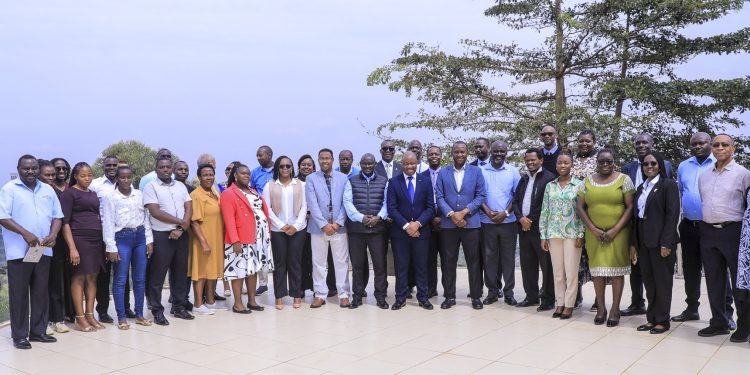A renewed push to eliminate long-standing disparities in how East African countries examine and license pilots and flight dispatchers has taken centre stage at a five-day regional workshop that opened yesterday in Kampala.
The meeting, hosted by the Uganda Civil Aviation Authority (UCAA) in partnership with the East African Civil Aviation Safety and Security Oversight Agency (CASSOA), aims to develop the first harmonised regional framework for flight crew and flight dispatch skill testing across the East African Community (EAC).
Speaking at the opening of the workshop at Protea Hotel Skyz Naguru, the UCAA Director for Safety, Security and Economic Regulation, Eng Ronnie Barongo said the region’s aviation sector can no longer afford fragmented testing and licensing approaches.
He noted that uniform standards would enhance safety, efficiency, competency and regional cooperation, in line with International Civil Aviation Organisation (ICAO) requirements for standardised training and assessment.
Barongo stated that while EAC states have already aligned their regulations, guidance materials, and theory examinations, practical skill tests the final gateway to licensing pilots and dispatchers remain inconsistent.
“Our strategic goal is to enhance aviation safety and efficiency through a harmonised regional framework for flight crew and flight dispatch skill testing,” he said. “For us in Uganda, we repeat it three times safety, safety, safety.”
He added that harmonising practices would eliminate duplication for aviation personnel trained in one EAC country but seeking employment in another.
“Now we are going to harmonise and learn from each other mainly best practices and improve in areas where some states may have challenges.”
CASSOA Director Technical, Paul Lukanga, said uniform testing criteria are essential because pilots and flight dispatchers operate closely together.
“Flight dispatchers or flight operations officers are what we call pilots on the ground. Their roles interact very well,” he said.
He added that while ICAO sets minimum global standards, partner states have set varying higher requirements.
“Uganda may set the minimum pilot age at 18, Burundi at 20, and internationally it is 16. That creates disharmony. We want East Africa to have one harmonised position so that qualifications issued in one state are valid across all eight EAC countries.”
Pilots say these inconsistencies have had real financial and professional implications.
Captain George Mazige, Vice President of the Uganda Professional Pilots Association, described the current system as “cumbersome and costly,” noting that Ugandans trained in neighbouring countries often face re-examination when they return home.
“A Ugandan trained in Nairobi should not have to pay again to be examined in Kampala,” he said.
Mazige added that harmonised skill testing is a key step toward a single regional licence recognised across all partner states.
The workshop, running from November 17 to 21, 2025, has attracted regulators, examiners, pilots, dispatchers and training institutions from across East Africa.









